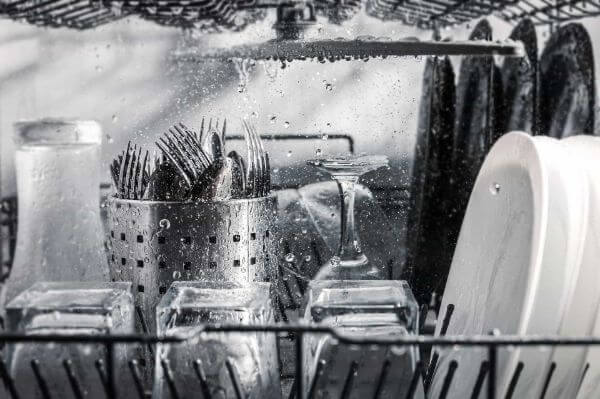Water conservation is a crucial consideration in our daily lives, and many homeowners wonder if using a dishwasher is more water efficient than washing dishes by hand.
In this blog post, we will examine the water efficiency of dishwashers and compare them to hand washing, debunking common myths and shedding light on the factors that contribute to water conservation.
Table of Contents
Dispelling Myths
- Myth: Dishwashers Use Excessive Water: One prevailing misconception is that dishwashers consume large amounts of water compared to hand washing. However, modern dishwashers are designed to optimize water usage. They utilize advanced water spray technology, sensors, and efficient wash cycles to minimize water waste. Hand washing, on the other hand, often involves continuously running water, leading to higher consumption.
- Myth: Hand Washing Saves More Water: Some believe that hand washing dishes is more water efficient since they have control over the water flow. However, studies have shown that efficient dishwashers can use less water per load compared to hand washing. When washing by hand, it’s common for individuals to use more water than necessary, leading to excessive water usage.
Factors Affecting Dishwasher Water Efficiency
- Load Size: Running a dishwasher with a full load is more water efficient than running multiple smaller loads or hand washing individual dishes throughout the day. Make sure to load the dishwasher efficiently to maximize water and energy savings.
- Pre-Rinsing: Pre-rinsing dishes before loading them into the dishwasher is unnecessary in most cases. Modern dishwashers are designed to handle food particles and have effective cleaning mechanisms. By skipping the pre-rinse step, you can conserve water and let the dishwasher do its job efficiently.
- Energy Star Rating: Look for dishwashers with an Energy Star label. These models meet strict energy efficiency and water conservation standards, ensuring optimal performance while minimizing water usage.
- Water-Saving Features: Many dishwashers offer water-saving features such as eco or light wash cycles. These cycles use less water and energy while still providing effective cleaning. Take advantage of these settings to maximize water efficiency.
Comparing Dishwashers to Hand Washing
- Water Consumption: On average, a dishwasher uses around 3-5 gallons of water per load. In contrast, hand washing can consume approximately 20 gallons of water or more for the same amount of dishes. Efficient dishwashers, therefore, provide substantial water savings.
- Time and Effort: Dishwashers not only save water but also save time and effort. Hand washing dishes can be time-consuming and requires continuous water flow. Dishwashers allow you to load the dishes, select a cycle, and let the machine do the work while you focus on other tasks.
Conclusion
Contrary to popular belief, dishwashers are generally more water efficient than hand washing dishes. Modern dishwashers are designed with water-saving features, efficient spray technology, and optimized wash cycles that minimize water waste. By running full loads, skipping unnecessary pre-rinsing, and selecting energy-efficient models, you can further enhance water conservation.
When considering the water efficiency of dishwashers versus hand washing, it’s essential to account for factors such as load size, pre-rinsing habits, and the type of dishwasher you choose. Ultimately, using a dishwasher is a convenient and water-efficient option for cleaning dishes, saving you time, effort, and resources in the process.
Remember to adopt responsible water usage habits, maintain your dishwasher properly, and choose an energy-efficient model to maximize water conservation in your daily dishwashing routine. By making informed choices and embracing efficient technologies, you can contribute to a more sustainable and water-conscious lifestyle.

